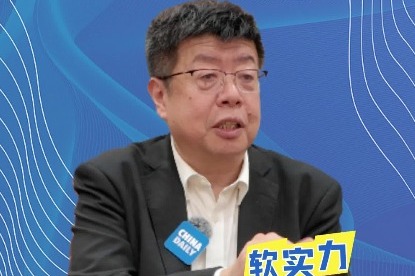Shifting to e-vehicles

Even with the installation of EV chargers, the popularity of EV charging in Hong Kong will depend on technology input. The second business value chain to be derived from the promotion of green transport would be the development of technology startups concerning smart mobility.
In June, the Environmental Protection Department launched the EV-Charging Easy mobile app, which provides information on locations and real-time availability of public EV chargers. EV drivers are thus equipped with handy information about the real-time usage of public charging facilities. Sime Darby Motors will launch a self-developed mobile app to enhance the customer experience, supporting the status of charging point availability, notification of the charging progress, and the online payment.
But there are concerns that some enterprises in Hong Kong may not be willing to share their information on EV charging business development with third parties.
"If information about the charging facilities of various EV-makers and third-party service providers in Hong Kong cannot be shared on a single platform, then there is issue about interoperability and interconnectivity of technology," Cheung says.
He believes that with a mobile app that can consolidate information about all public and private EV chargers in Hong Kong, drivers would have more flexibility in charging their vehicles, and this might encourage more drivers to switch to EVs.
Chow calls on the SAR government to take the lead in encouraging enterprises to fortify the development of such a mobile app to accelerate the growth of an EV charging ecosystem.
Nurturing experts
The development of Hong Kong's EV industry will also generate demand for a new breed of technology expertise in engineering. Repairing and maintenance of EVs requires a different skillset that is completely different from that of conventional vehicle mechanics. Repairing and maintaining EVs call for knowledge of power electronics and electrical engineering. Global EV manufacturers have begun allowing third-party access to their software and diagnostic systems, as well as revealing their repair manuals and other servicing and parts documents and information.
"Electrical engineering expertise is required for Hong Kong to develop different charging technologies, such as quick and slow charging. Knowledge of chemistry is also needed to study the operation of EV batteries, and EV car maintenance is desperately sought. Educational institutions in Hong Kong should provide such courses," Chow says.
"Hong Kong may have electrical, power and chemical engineers, but these talents are scarce, while the talents we have are more related to mechanical engineering," Cheung says. "Our educational institutions — universities and vocational training schools — need to add more subjects in electrical, power and chemical engineering for students."
EV battery recycling is another field that would benefit from popularizing EVs in Hong Kong as EV batteries expire. Recycled EV batteries can be used to generate power for construction sites, indoor activities and lighting systems.
Battery recycling would create another industry value chain. EV suppliers in Hong Kong have engaged licensed collectors to collect expired batteries of their vehicles. After proper preliminary treatment, such as sorting, discharging, insulating and packaging, expired batteries are exported to treatment facilities overseas for recycling.
Thus, Hong Kong would require professionals who can handle retired EV batteries — a complicated and highly technical process — before they can be recycled. According to Cheung, the HKPC is actively studying the technology of EV battery recycling. "The council is talking to players in environmental industries concerning the feasibility of setting up a recycling plant that could comply with Hong Kong's environmental laws and standards, bearing in mind whether a critical mass market could be developed for electrical waste."
Chow urged Hong Kong to collaborate with the mainland in developing the EV battery recycling business. "The Hong Kong market is too small for a viable EV-battery recycling market. It makes more business sense for Hong Kong to foster industry talent collaboration with other Guangdong-Hong Kong-Macao Greater Bay Area cities to develop new EV battery recycling technologies."
Contact the writer at oswald@chinadailyhk.com
- Ministry to optimize the structure and scale of university enrollment
- Why do China's cultural and creative products go viral?
- Aviation sci-fi park Nantianmen to open in 2027
- Chinese researchers make breakthrough in green cooling technology
- Former head of national forestry and grassland body under investigation
- A new lease of life: Providing dialysis access in rural China





































